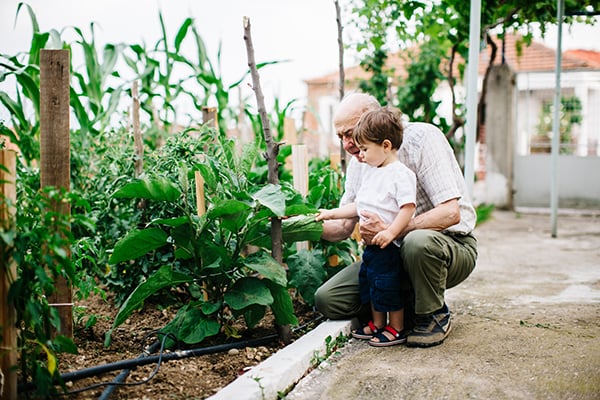Connecting Communities: Tackling the loneliness epidemic

About 46 per cent of Australians over 65 report feeling lonely sometimes, and the risk of loneliness has increased during the COVID-19 pandemic.
Top tips to grow social connection and potentially help reduce loneliness
Everyone is different, and what makes their connections meaningful with others depends on the individual; one size does not fit all. Some different ideas for building meaningful connections can include:
- Getting creative: Keeping in touch with friends doesn’t need to be in person – it can include telephone, video calls, internet chat, emails, or even a letter or postcard.
- Getting involved: One way to build new connections is by joining a local community group, a sports club, or a special interest group online. Taking part in an activity that has meaning for you makes conversation easier, and you can meet likeminded people. Local newspapers and community centres are good sources of information about activities that might be interesting for you.
- Volunteering: Volunteering also provides a rewarding opportunity for many people. It’s a way to make new connections by working with people who have the same goal, while giving back to the community.
What is loneliness?
Loneliness is a negative emotion that happens when the level of social connection someone has is less than the level of connection they would like. Social isolation is one factor that can contribute to loneliness. Social isolation is about the quantity of social connections a person has, while loneliness is about the quality of those social connections.
Loneliness is an important health issue for older people because it is associated with poorer quality of life and health outcomes, including increased risks of chronic illness, depression and anxiety. It is also associated with functional and cognitive decline including reduced mobility and a higher risk of dementia. Evidence shows that good relationships are important for mental wellbeing. People with social relationships have a 50% increased likelihood of survival from conditions such as vascular disease and cancer.
Why are older people at risk?
There are many factors that can contribute to loneliness, including life transitions or changes.
While everybody experiences transitions during their lives, they tend to increase and have a greater impact as we get older. Transitions can be expected, for example retiring or becoming a grandparent, or unexpected such as reduced physical or cognitive ability due to illness, or an accident. All these changes can affect how people see themselves, their relationships and their sense of belonging.
What are we doing?
There are many approaches to reducing loneliness. Solutions can be at the individual (helping people interact better with others), relationship (helping people build stronger connections) or community (helping people get involved and increase social interactions) level.
One community approach that has shown success is called social prescribing. This works by linking medical and social care, through encouraging healthcare providers to formally include social activities with ‘social prescriptions’. GPs get involved to prescribe social activities for older residents who are at risk of social isolation and loneliness.
Social prescribing works best when it’s part of a community-wide approach, integrating existing solutions into communities, and where neighbourhoods are activated to offer a range of social and wellbeing activities that are co-designed with people in the community. Research shows social prescribing can help improve connections for older people and people who are lonely. It shows what is possible when a neighbourhood is organised and committed to inclusion and helps combat ageist perceptions.
Making a difference
One program that has been making a difference for older people feeling isolated during COVID-19 is Bolton Clarke’s HOW-R-U? initiative. The program matches volunteers from Bolton Clarke’s corporate volunteering program for a weekly phone call with older people who would like more social connection. Telephone support has been found to reduce feelings of social isolation, loneliness and depression, as well as to improve quality of life.
In Victoria, the PoWER project on the Mornington Peninsula worked with older women living alone to co-design interventions that would help them better connect with their community, ranging from exercise buddies to transport help.
Bolton Clarke Research Institute has also been working to help people in residential aged care communities stay connected through intergenerational projects and initiatives like the Life Stories project and through use of technology for virtual visits.
Download a PDF of this white paper here.
Be Healthy and Active
Free health and wellbeing sessions
Bolton Clarke’s Be Healthy and Active program provides free, practical sessions to help you get the most out of life.

Recent white papers
Information for consumers on topics about health, wellbeing and active ageing.

